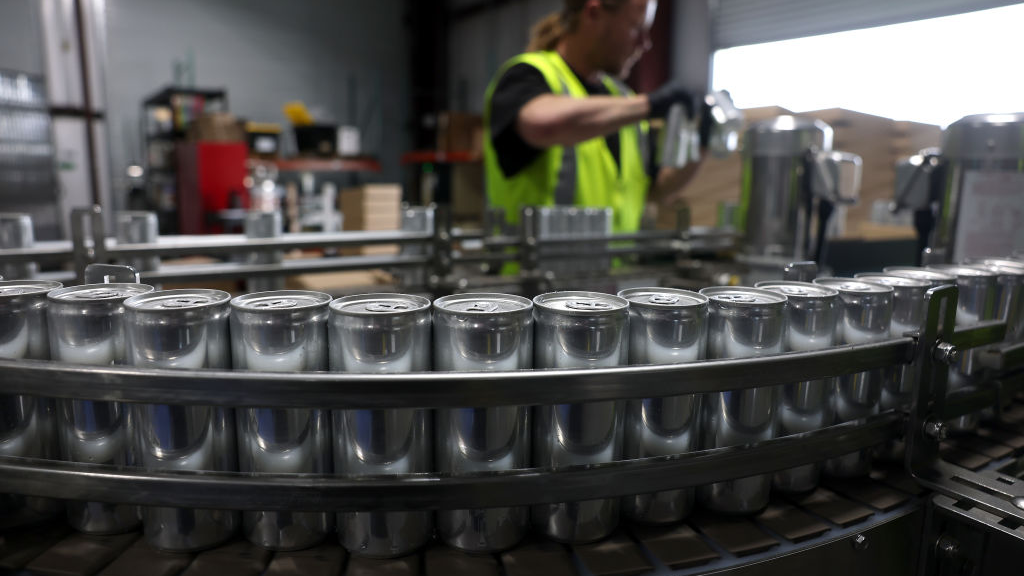In a significant bipartisan initiative, Senators Joni Ernst (R-Iowa) and Lisa Blunt Rochester (D-Del.) have introduced the Critical Infrastructure Manufacturing Feasibility Act. This legislation aims to prompt the Commerce Secretary, Howard Lutnick, to explore the establishment of critical manufacturing sectors within the United States, thereby addressing the challenges of reliance on foreign imports. The effort underscores the pressing need for the U.S. to enhance its domestic production capabilities to bolster national security and support local economies.
| Article Subheadings |
|---|
| 1) Background of the Initiative |
| 2) Objectives of the Legislation |
| 3) Rationale Behind Onshoring |
| 4) Impact on American Jobs |
| 5) Future Implications |
Background of the Initiative
The push for the Critical Infrastructure Manufacturing Feasibility Act comes at a crucial time when global supply chains are shifting and becoming increasingly strained. The COVID-19 pandemic highlighted vulnerabilities in reliance on foreign manufacturing, especially for essential products. Lawmakers, acknowledging these challenges, have taken steps to ensure that the U.S. can produce critical goods domestically. Joni Ernst and Lisa Blunt Rochester represent regions that have faced economic difficulties, particularly in underserved rural areas that stand to benefit from manufacturing resurgence.
Objectives of the Legislation
The Critical Infrastructure Manufacturing Feasibility Act seeks to address key concerns regarding domestic production capabilities. Within 18 months, Howard Lutnick will be mandated to report on sectors plagued by supply-chain constraints that inhibit domestic production. The report will also explore the feasibility of ramping up production in these sectors, particularly in underserved regions of the country. The emphasis lies in strategically identifying where the U.S. relies heavily on foreign imports for critical infrastructure and developing actionable plans for manufacturing on American soil.
Rationale Behind Onshoring
The rationale for promoting domestic production is multi-faceted. First and foremost, it seeks to enhance national security by reducing dependence on foreign adversaries for critical goods. In recent years, there has been a growing sentiment that such dependencies pose risks, especially when geopolitical tensions escalate. Furthermore, strengthening domestic supply chains is seen as a pathway to increased economic resilience, ensuring that the U.S. is better equipped to handle disruptions in global supply networks. Lisa Blunt Rochester emphasized that revitalizing local economies and creating American jobs are pivotal goals of this initiative.
Impact on American Jobs
One of the primary expected outcomes of the legislation is the creation of jobs across various sectors. By boosting domestic manufacturing capabilities, the initiative aims to generate local employment opportunities and support communities that have faced economic challenges. The possibility of new manufacturing plants opening in rural areas suggests a revitalization of these communities. It is anticipated that this legislation will not only support existing industries but also attract new businesses to the forefront of American manufacturing.
Future Implications
The far-reaching implications of the Critical Infrastructure Manufacturing Feasibility Act extend beyond immediate job creation. As domestic production becomes more viable, U.S. manufacturers may invest in advanced technologies to improve efficiency and competitiveness. This could lead to an overall strengthening of the U.S. economy, positioning it as a leader in critical infrastructure. Additionally, the focus on underserved regions may also help to bridge economic disparities, contributing to more equitable growth across the nation.
| No. | Key Points |
|---|---|
| 1 | The Critical Infrastructure Manufacturing Feasibility Act seeks to enhance domestic manufacturing. |
| 2 | Bipartisan support highlights the urgency of addressing supply chain vulnerabilities. |
| 3 | The initiative aims to identify critical infrastructure sectors where U.S. reliance on imports is problematic. |
| 4 | Jobs are expected to be created through revitalization of rural manufacturing. |
| 5 | Future investments in technology may enhance the competitiveness of U.S. manufacturing industries. |
Summary
The introduction of the Critical Infrastructure Manufacturing Feasibility Act represents a pivotal moment in U.S. policy aimed at fortifying domestic production capabilities. By addressing critical supply chain vulnerabilities and focusing on rural economic development, lawmakers are striving to enhance national security while fostering local job creation. The bipartisan nature of this initiative underscores its importance in shaping the future landscape of American manufacturing and economic resilience.
Frequently Asked Questions
Question: What is the Critical Infrastructure Manufacturing Feasibility Act?
The Critical Infrastructure Manufacturing Feasibility Act is a bipartisan legislative initiative aimed at exploring the feasibility of enhancing domestic production capabilities in critical infrastructure sectors currently reliant on foreign imports.
Question: Who introduced the legislation?
The legislation was introduced by Senators Joni Ernst (R-Iowa) and Lisa Blunt Rochester (D-Del.), reflecting a collaborative effort across party lines.
Question: What are the key goals of the legislation?
The primary goals include reducing dependence on foreign imports, strengthening national security, and creating jobs in underserved rural areas by increasing domestic manufacturing capabilities.


